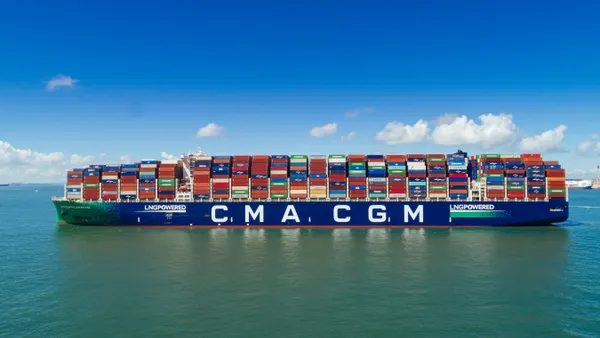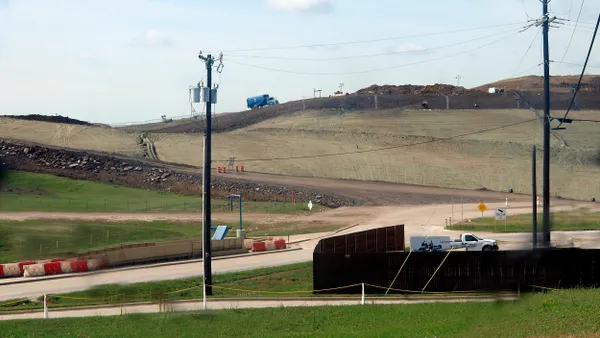UPDATE: Dec. 4, 2018: Following a lawsuit filed last month against the Tri-City Landfill, the Virginia Department of Environmental Quality has informed Meridian subsidiary CFS of its intent to revoke the company's solid waste permit. Additional issues were identified during a Nov. 19 inspection, according to WTVR.
The landfill, which receives trash from across the Tri-Cities region, faces a potential shutdown pending the success of the revocation process — leaving the future of waste disposal in the area unclear. Local governments have been in contact with Central Virginia Waste Management in anticipation of a possible closure — according to Colonial Heights Mayor Greg Kochuba, "Central Virginia Waste Management has a bond, financial support to provide another carrier to get us through the five-year contract at the same rate."
Dive Brief:
- The Commonwealth of Virginia, the Virginia Department of Environmental Quality (DEQ) and the Virginia Waste Management Board brought charges against CFS Group Disposal & Recycling Services, LLC, a subsidiary of Meridian Waste, on Nov. 1, after multiple warnings and violation notices from DEQ.
- The suit alleges multiple violations at the company's Tri-City Landfill in Petersburg, Virginia, including filling the site beyond permitted slope and height limits, not maintaining an adequate daily cover, letting stormwater systems become clogged, allowing coal ash to escape a lined area and maintaining a waste pile larger than permitted.
- In a statement provided to CBS 6, Meridian Waste's Chief Marketing Officer Mary O’Brien said the company could not comment on pending litigation but had "amended operations to greatly reduce waste disposal at the Tri City Landfill" in addition to making operational improvements.
Dive Insight:
The Tri-City Landfill was one of two MSW landfills that came with Meridian's acquisition of CFS Disposal & Recycling in 2017 — a move that marked its entry into the Virginia market. In its response to CBS 6, Meridian alleged that some of the violations date back to before its ownership; however, according to the attorney general's office, DEQ contacted the company at least three times since the deal was finalized, most recently in August of this year.
“CFS repeatedly received warnings that it was in violation of the law but it continued to ignore its responsibility to protect the land, air and water around the Tri City Landfill and failed to comply with waste management permits and regulations,” Attorney General Mark Herring said in a statement. According to Herring, his office is seeking reparations for the state from CFS for "its role in damaging the environment around its Petersburg facility."
Landfill regulations are continuing to evolve — particularly at the federal level, where the EPA is currently trying to stall a lawsuit over methane emissions rules — and violating them can be costly. And while a transition period is to be expected when companies take ownership over a new site, precedent has shown that this usually has little bearing on their legal responsibility for preexisting conditions.
Beyond impacting the bottom line, operational issues at landfills can trigger local public relations problems, damage the local environment and put workers at risk.
According to the latest annual report from Virginia DEQ, the Tri-City landfill has an estimated 3.5 years or less of permitted capacity left — and, in light of the lengthy permit renewal process, it will likely be in Meridian's interest to resolve the dispute as quickly as possible if it plans to extend the site's lifespan.









